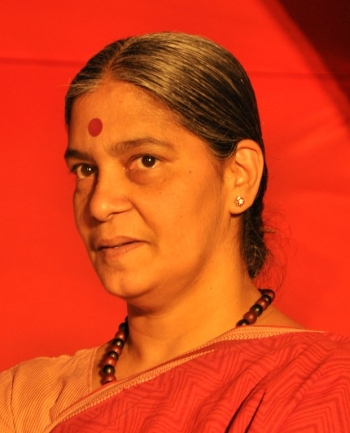
 A. J. Philip
A. J. Philip

The case of Annie Raja, general secretary of the National Federation of Indian Women (NFIW), and her two colleagues has attracted significant attention and controversy. They visited Manipur from June 28 to July 1, where they witnessed and documented the ugly goings-on there. However, their efforts to shed light on the situation in the state were met with severe repercussions.
At a Press conference held in New Delhi, Annie Raja and her colleagues, Nisha Siddhu and Deeksha Dwivedi, bravely disclosed the details of what they had observed during their visit. Their intention was to bring attention to the alleged human rights violations, social unrest, and political concerns prevalent in the region. Instead of receiving a fair hearing and an opportunity to present their case, they found themselves facing sedition charges filed against them by the state authorities.
The sedition charges have raised concerns about the shrinking space for dissent and the potential curtailment of freedom of ex
In a surprising turn of events, the court directed them to seek relief from the Imphal High Court. It is worth noting that the apex court had emphasised that no sedition charges should be registered against anyone anywhere in the country.
The case has sparked a nationwide debate about the appropriate use of sedition laws and the protection of fundamental rights, such as freedom of speech and ex
In a question-answer session, Annie Raja answers all the questions asked by A J Philip, a senior journalist:
Q: Did you face any difficulties during your journey to Manipur?
A: There were not many difficulties as members of our sister organisations were there to take care of our needs. We found many checkpoints manned by women. They made a mockery of the checkpoints set up by the state agencies like the police. Our driver was, fortunately, a Muslim. Had he been a Kuki or a Meitei, it would have been a real problem.
Q: Did you find any improvement in the ground situation?
A: Though it was nearly two months since violence broke out on May 3, we found a tense situation around the hotel where we stayed at Imphal. One night, we were woken up by the firings between the police and some militant organisation. This showed that peace was yet to return to the state.
Q: You would have visited many trouble spots. What did you find peculiar in Manipur?
A: It is the role played by women. They are the ones who safeguard the property of the family. The men sleep inside their houses while the women keep vigil outside. All the private checking points are manned by women. Both Meiteis and Kukis do not lag behind in this respect.
Q: I have seen your letter to the Union Minister. What prompted you to write it?
A: It is now two-and-a-half months since the riots began. There are now more than 100 bodies kept in the government hospitals. They have been rotting for want of adequate refrigeration facilities. Imphal is now ethnically cleansed of Kukis. Most of the bodies belong to the Kukis. Their relatives cannot come forward to identify and claim the bodies. We suggested some measures to solve this problem. I hope the Home Minister will act upon our recommendations.
Q: What are your main findings?
A: We are yet to publish the final report of our findings. We addressed a Press conference in Delhi where we shared with the general public our preliminary findings. We believe that the violence was not spontaneous and it was state-sponsored. Instead of appreciating our stand, a sedition case has been filed against us.
Q: What are the chances of getting justice?
A: We expected the Supreme Court to quash the FIR as the apex court had taken a stand that the sedition law had no place in a democratic country. It was junked in Britain from where it was imported. We have been asked to file an appeal before the Imphal High Court. Almost all the judges and lawyers belonging to the Kuki community have fled from Imphal. There is not a single Kuki living there. How can we expect justice under such circumstances? Since the apex court has advised us to go to Imphal, we have no other alternative.
Q: What is the situation in the relief camps?
A: It is pathetic. There are tens of thousands of people in these camps. We visited four such camps. The facilities are minimal. They need to be improved and a solution found so that they can go to their own houses. The state has to be proactive.
Q: Are you happy with the statement of Prime Minister Narendra Modi on the disrobing of two women in Manipur?
A: I am happy that he has broken his silence. However, the fact of the matter is that the incident happened on May 4, the second day of violence. As soon as the Prime Minister spoke about it, the Manipur police arrested some of the accused. In fact, there are many videos which can help the police take summary action against the perpetrators of violence. None of them should escape punishment. This will help restore the people’s faith in the rule of law in the country.
Q: Are you disheartened by the FIR against you and your colleagues?
A: We are not disheartened, though it is a challenge we have to face. We stand by what we said in the Press statement. We are democrats and we would never advocate violence. We will continue to stand for the rights of the people of Manipur.